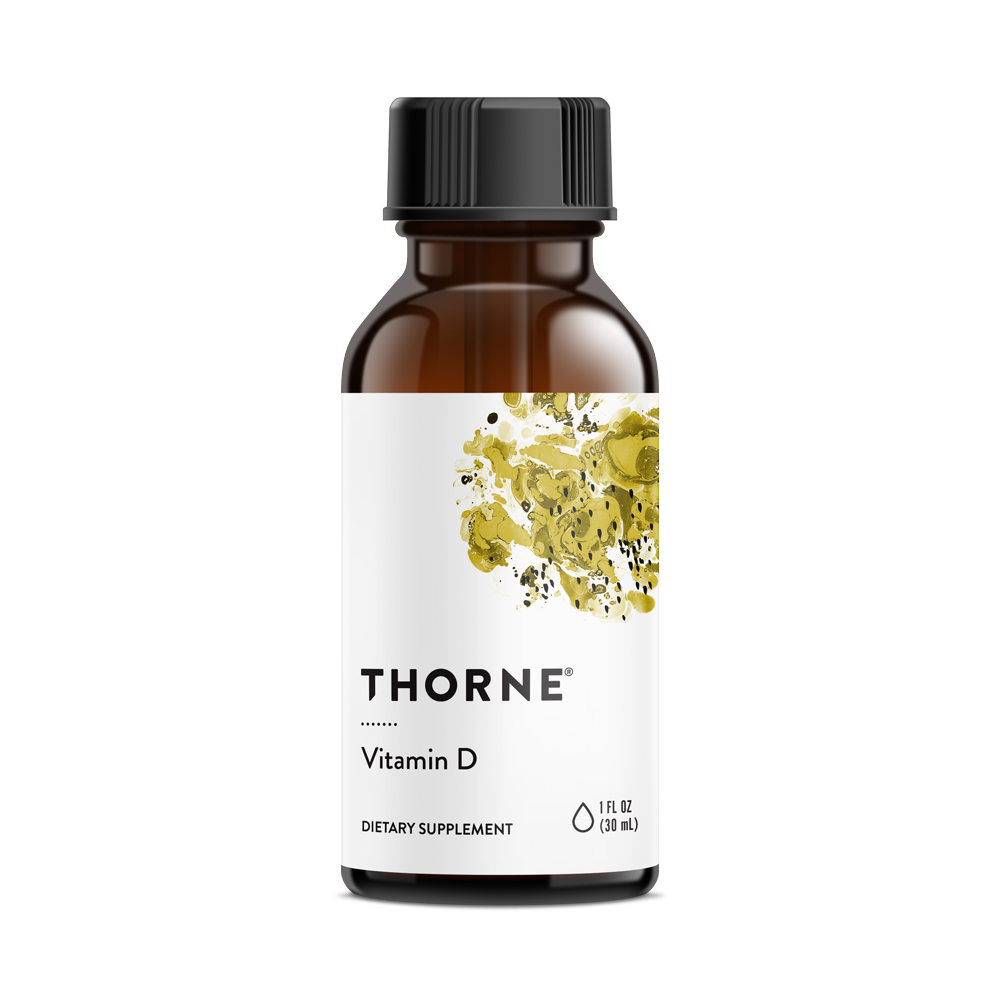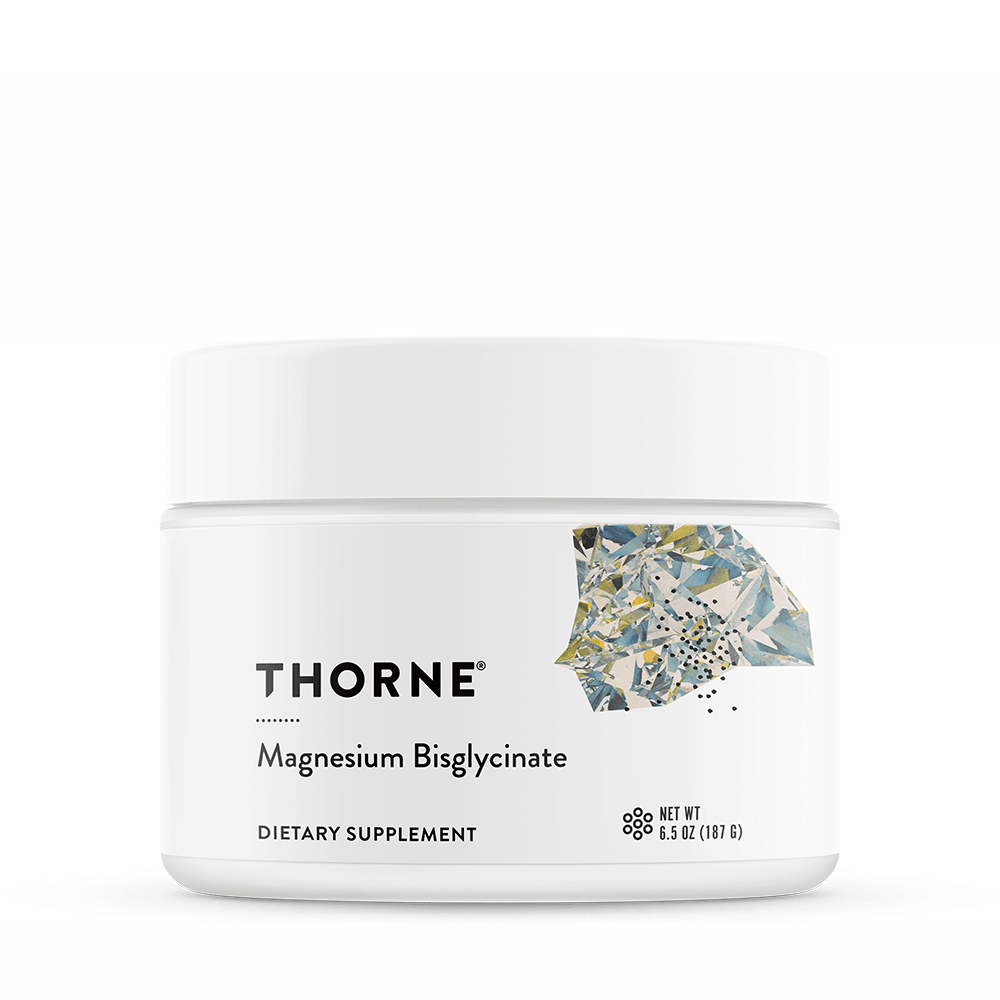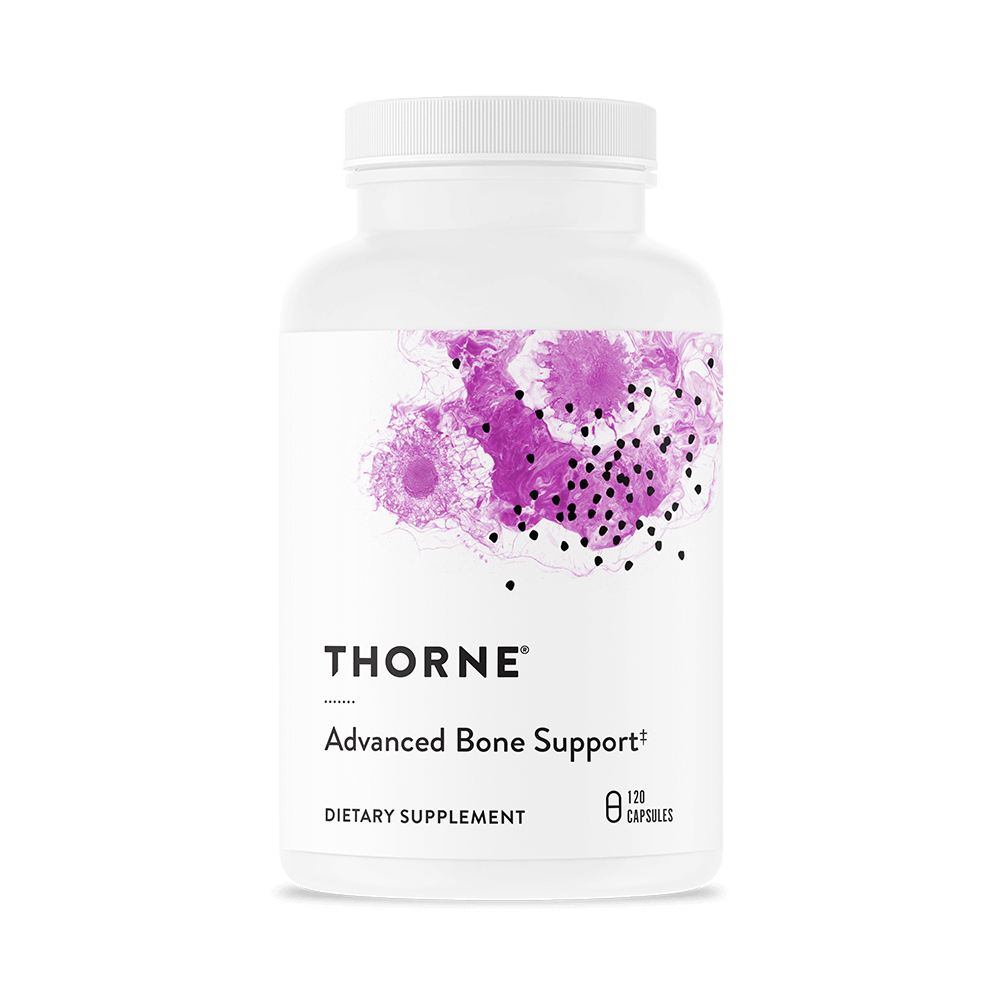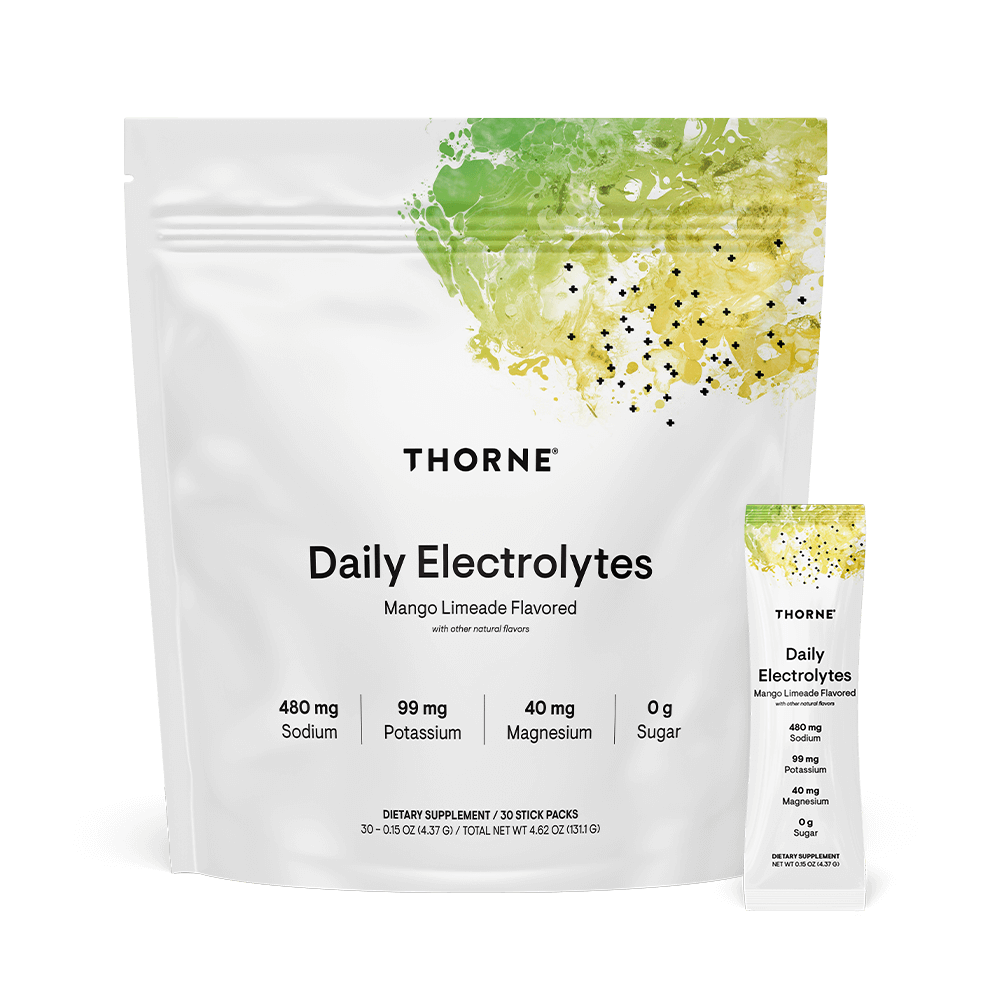
We’re excited to be an affiliate with Thorne. We feel they offer a quality brand to the public to help people improve their health and performance. As an affiliate, we receive a commission when you order their products using the links on this page. If you decide to do so, we truly appreciate your business.
***Disclaimer: Before adding a supplement to your regimen, you should consult with a medical doctor first. This is especially true if you take medications, as supplements can have unintended interactions with them.
General Health Supplements
Vitamin D3
Omega-3s
Magnesium
Vitamin B12
Dietary Fiber
Creatine Monohydrate
Vitamin D
Vitamin D (also referred to as calciferol) is a fat-soluble vitamin that is produced endogenously when ultraviolet (UV) rays from sunlight strike the skin and trigger vitamin D synthesis. It’s present naturally in a few foods and is fortified in many other foods like dairy products. Because we spend less time outside than previous generations, Vitamin D deficiency is common in the general population, and, therefore, is a good candidate for daily supplementation.
Omega-3s
Omega-3s are a type of polyunsaturated fatty acid (PUFAs). Omegas are created primarily by marine algae, which are then eaten by other marine life like fish, which is why many omega supplements, like Super EPA, are fish oil products. ALA is the only omega that is considered essential, meaning it must be obtained from the diet. However, while ALA can convert into EPA and DHA, this conversion is small, and, as a result, EPA and DHA should also be obtained through diet. Omegas are important for the health of cell membranes throughout the body, among other functions.
Magnesium
Magnesium is a mineral that, according to the NIH, “is a cofactor in more than 300 enzyme systems that regulate diverse biochemical reactions in the body, including protein synthesis, muscle and nerve function, blood glucose control, and blood pressure regulation.” It’s commonly touted for its sleep quality benefits. These are just a few of the many functions Magnesium plays in the body. It’s widely available in many plant and animal sources, and when consumed, about 30-40% is absorbed.
Fiber
Fiber is an indigestible type of carbohydrate. Primarily, there are two types of fiber, insoluble and soluble. Two benefits of dietary fiber are that it helps slow the release of glucose into the bloodstream and improves insulin sensitivity, both desirable effects for diabetics. More than 90% of the US population doesn’t consume the recommended amount of fiber in a day (25+ grams/day). Because of this, many may benefit from a fiber supplement since high-fiber diets have consistently been shown to reduce all-cause mortality (death) and improve multiple health outcomes. Increasing fiber intake can cause gastrointestinal symptoms, but for many, this resolves in time and with exposure.
Creatine
Creatine is a non-protein nitrogen. The human body does create a small amount of creatine. However, the amount created isn’t enough to provide optimal benefit. And, to obtain the amount of creatine needed for optimal benefit from animal sources, you’d need to consume over 2 lbs. of meat per day. Creatine monohydrate is one of the most studied supplements ever. Simply put, Creatine’s main benefit is that it helps turn ADP back into ATP (the body’s primary energy source). It has almost no safety concerns and has been repeatedly shown to be an effective supplement for improving muscle strength and size. More recent research has shown that creatine supplementation may have protective effects against cognitive diseases like Alzheimer’s and may improve cognition in general. 3-5 grams (g) per day is optimal and taking more doesn’t provide any extra benefit.
Vitamin B12
Vitamin B12 is created by certain bacteria and archaea. Plants and animals are unable to synthesize it themselves, and, due to this, we must obtain B12 from our diet. The reason it is found in animals and animal products is that these animals consume untreated water, where bacteria produce B12. B12 isn’t found in our drinking water because we treat it, a process which eliminates harmful pathogens and bacteria, but also destroys the B12 found in contaminated water. For strict vegans, B12 is a non-negotiable supplement because it’s not available in a plant-based diet. This product contains appropriate doses of Vitamin B12, as well as Vitamin D and Magnesium. Therefore, it can address multiple needs.
Joint Health Supplements
Omega-3s (See Super EPA in “General Health Supplements”)
Vitamin B12, Vitamin D3, & Magnesium (See Advanced Bone Support in “General Health Supplements”)
Collagen
Curcumin Phytosome
Boswelia Phytosome
Glucosamine & Chondroitin
Collagen
Collagen is the most abundant protein in the human body and is a vital component of skin, bones, muscles, tendons, ligaments, and cartilage. There are 28 different types of collagen in the human body, but Types I, II, III, and IV are the most common, with Type I being the most common. Collagen helps to make the tissues and cells they exist in more structurally resilient. Research is lacking regarding collagen supplementation, but so far, it appears it has beneficial effects for hair, skin, and nail health, and more recent research indicates there may be a benefit for joint pain and health. More importantly, no major safety concerns exist currently regarding collagen supplementation.
Curcumin
Curcumin is the antioxidant that gives turmeric, a member of the ginger family, its yellow/orange color and its medicinal properties. As a result, turmeric has been used in eastern medicine for many generations and is believed to help with the common cold, skin infections, arthritis, abdominal pain, and liver disease. Because of this, curcumin has been studied for its potential medical benefits. Currently, there’s some support that it may provide a beneficial effect for joint pain and health.
Boswellia Serrata
Boswellia Serrata is a tree native to India, Africa, and the Arabian Peninsula. It’s been used in Ayurvedic medicine for many generations due to its believed health benefits. Primarily, it may be beneficial in improving osteoarthritis symptoms according to the current literature.
Glucosamine & Chondroitin
According to the NIH, “Glucosamine and Chondroitin are constituents of cartilage, a component of the joints. Glucosamine is a building block for molecules called glycosaminoglycans that are part of the structure of cartilage. Chondroitin is a component of cartilage that plays a role in its resistance to compression.” It’s theorized that supplementing with these compounds may aid in maintaining or even improving joint health. Some research does support the use of these products for pain relief in people who suffer from osteoarthritis.
Performance Supplements
Creatine Monohydrate (See Creatine in “General Health Supplements”)
Magnesium (See Magnesium in “General Health Supplements”)
Collagen (See Collagen in “Joint Health Supplements”)
Whey Protein Isolate
Beta-Alanine
Recovery Pro
Electrolytes for Endurance Activities (Cross Country, Soccer, Football, etc.)
Whey Protein
Whey protein is the protein from whey, the watery portion of milk that separates from the curds when making cheese. Protein is essential in many tissues and cellular processes of the human body. They are used to rebuild muscle, hormone production, create antibodies to fight infection, transport oxygen, and much more. Like any protein supplement, whey protein aids in muscle protein synthesis, which is beneficial during both in-season and off-season activities. In the offseason, when training, it helps to optimize muscle hypertrophy and strength. Inseason it can improve recovery time and help maintain muscle mass and strength.
Beta-Alanine
Beta-alanine is a non-essential amino acid. It is a precursor to carnosine, a dipeptide, meaning it helps to create more carnosine. Carnosine helps to reduce increase pH (reduced acidity) within the muscle tissue. Because of this, beta-alanine has the potential to improve athletic performance, especially in higher-intensity workouts and sporting events, by reducing muscular fatigue.
Recovery Pro
This product contains whey protein, magnesium biglycinate, L-tryptophan, and Gamma-Aminobutyric Acid (GABA). This product, as its name suggests, may help with recovery. Taking this an hour or so before you sleep may be best. L-tryptophan is an essential amino acid that is a precursor to the calming neurotransmitter serotonin and hormone melatonin. GABA is an inhibitory neurotransmitter that further calms the nervous system. Magnesium, L-tryptophan, and GABA work together to improve sleep while your body utilizes the extra protein to “rebuild” after a tough training session, game, or competition.
Electrolytes
Electrolytes are minerals that carry an electrical charge when dissolved in a liquid. They have many functions in the body, but primarily aid in regulating fluid balance (which is important for maintaining a healthy blood pressure), nerve and muscle function, and maintaining a healthy pH level. The 3 electrolytes that are lost most when sweating are sodium (Na+), chloride (Cl-), and potassium (K+), where sodium and chloride are lost the most. Electrolytes are beneficial for continuous endeavors that last 1 or more hours (football, cross country, tennis, soccer, etc.) or when training/competing in humid environments where sweating is more profuse.














